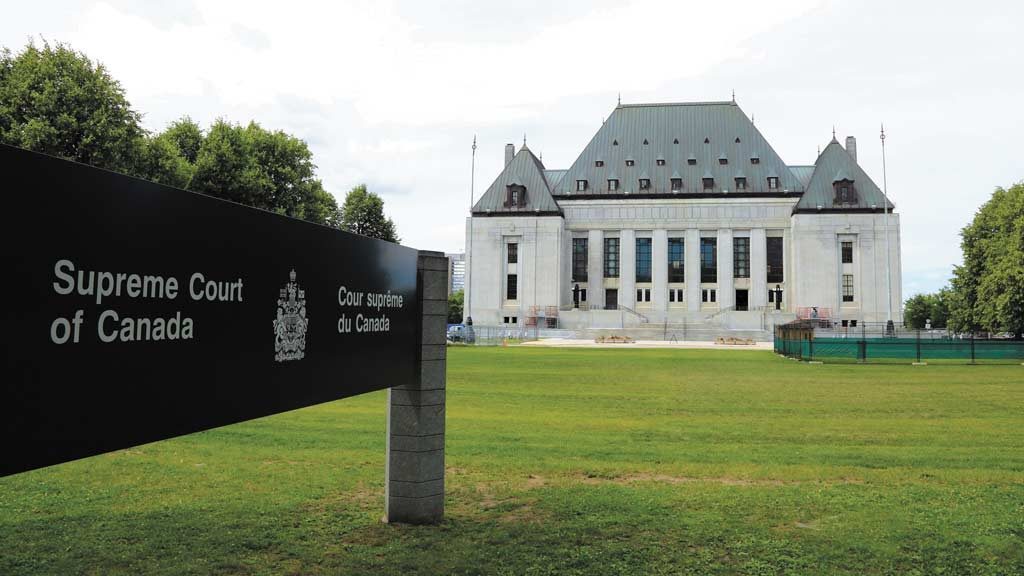The Supreme Court of Canada has dismissed an appeal on the use of reprisal clauses in British Columbia and the Ontario General Contractors Association (OGCA) and the Ontario Road Builders Association (ORBA) say this could have serious implications for contractors and the construction industry across Canada.
B.C.-based J. Cote & Son Excavating Ltd. took the City of Burnaby to court after a dispute over payment for a sewer project and as a result the company became blacklisted from bidding on future city projects.
The issue went before the B.C. courts and in June a decision was made to uphold the use of reprisal clauses in city contracts. The decision was appealed but the Supreme Court recently upheld the decision.
“This is no doubt a complete abuse of power, it’s intimidation, it’s sheer blackmail to deny people their rights under the law and how a bunch of educated judges failed to see that boggles my mind,” stated OGCA president Clive Thurston.
“This is a threat to peoples’ constitutional right to justice… This has nothing to do with municipalities being buyers of services and can deal with whoever they want. They are spending public money, they have to be accountable and these rules make them not accountable.”
The ORBA agreed the decision is restrictive to contractors and suppliers.
“We think it’s out of step with the need for open, fair and transparent resolution processes,” said Bryan Hocking, COO of ORBA, in an email to The Daily Commercial News. “We strongly maintain that these types of clauses are unfair and unduly restrictive to contractors and suppliers bidding on public projects.”
Council of Ontario Construction Associations (COCA) president Ian Cunningham said it’s difficult to understand how the Supreme Court of Canada arrived at its decision.
“In our democracy, the courts are where we go to have our disputes heard and resolved,” he noted.
“It seems almost undemocratic, certainly unjust, that a municipality can force a contractor to forego seeking resolution of a legitimate dispute through the proper channels in order to bid future work with that municipality.”
Thurston pointed out that it’s not limited to construction.
We need the politicians to step up and protect the public,
— Clive Thurston
Ontario General Contractors Association
“If they can apply this reprisal clause to contractors and subtrades, what is to stop them from applying it to other suppliers to municipal bodies and other people that provide services to the public,” asked Thurston.
Reprisal clauses restrict competitive bids and drive up the cost of construction, added Steven Crombie, government and stakeholder relations, OGCA.
“They force contractors who have a dispute with the city to choose between pursuing their legal rights and bidding on future city contracts,” explained Crombie.
According to an OGCA newsletter, the association anticipates that the recent introduction of prompt payment legislation will increase the number of adjudications, triggering a jump in reprisal policies being applied.
“Here in Ontario we have a bigger problem, we have an act that says we must file for adjudication under certain circumstances and we have public owners telling us ‘if you do that, we can put you on our reprisal list,’ ” said Thurston.
“We know talking to some municipalities, the City of Toronto in particular, that they intend to invoke their reprisal clauses if you do that. We’ve tried to bring this to the attention of the government and so far without success but we’re going to continue.”
The City of Toronto has amended its purchasing policy to include language which states litigation includes other forms of adjudication.
“The reason why this is troubling is if the City of Toronto considers adjudication to be litigation then if one of our members does adjudicate against the municipality…the municipalities may or may not consider that to be a form of litigation which would then potentially trigger a reprisal clause and put them on a vendor ban list,” said Crombie.
“Because of the size and scope of the City of Toronto, we are fearful that other municipalities are going to follow suit in their purchasing policies.”
Crombie said the OGCA has engaged with certain public owners to say the use of these purchasing policies are punitive and are against their own interests.
“More recently we have moved our efforts to engaging with the provincial government,” said Crombie, adding each of the over 400 municipalities in Ontario has its own purchasing policies.
“Rather than put out these fires across the province we believe the solution would be a legislative amendment to prohibit any municipality within the province from using these sorts of clauses in their purchasing policy. We really do believe that is where the solution is.”
Thurston said it may be that the courts have decided that in the absence of any clear provincial or federal law, they had no choice but to uphold the decision on reprisal clauses.
“We need the politicians to step up and protect the public,” said Thurston.
Part of the challenge is members don’t necessarily want to come out publicly against a particular municipality or public owner because they fear facing punitive damages, Crombie noted.
“It’s one of these things that unfortunately creates a fear and a distrust in the industry,” said Crombie.
Follow Angela Gismondi on Twitter @DCN_Angela.










Recent Comments
comments for this post are closed